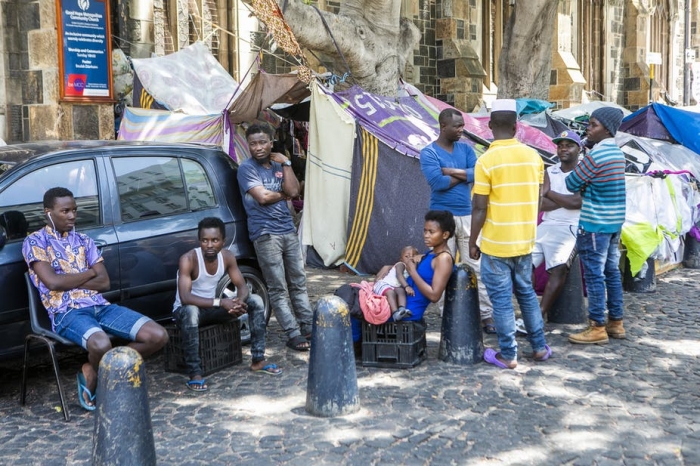source image: https://theconversation.com/
By Gloriose Ntirenganya
South Africa biggest country
The Republic of South Africa is the ninth biggest country in Africa, and it is the Southern most country in Africa with a population of over 59 million people. The total surface area is of approximately 122 million square kilometers.
The South Africans speak English and Afrikaans . South Africa has different ethnic groups. The majority of the population is of Black origin, followed by the White South Africans, the Colored, and the Asian South Africans.
South Africa has many international migrants. The majority comes to South Africa to escape political violence, war, poverty and destitution in their own countries.
Approximately 4,2 million foreigners live in South Africa . The Majority comes mostly from Zimbabwe, Ethiopia, Nigeria and the Democratic Republic of Congo.
Refugee status and Asylum
The person entering the Republic of South Africa in seek of asylum can stay for a period of only 14 days on the basis of the Immigration Act. This permit authorizes the person to report to the nearest refugees' reception office in order to apply for asylum.
The permit which is valid for a period of six or three months allows the asylum seeker to stay in the Republic of South Africa temporarily pending a final decision on his/her application . The permit can be extended by the Refugee Reception Office (RRO) for a further period of three or six months while the process of status determination is in progress.
In case of rejection of the permit, the asylum seekers or refugees have the right to appeal to the Office of Refugees Appeal Board (RAB) for a review of the decision within 30 days after the decision has been handed over to them.
The permit holders who have been in South Africa for more than five years have the right to apply for permanent residence. This right is recognized solely to those who hold a refugee status but not to asylum's seekers.
As opposed to many other countries, South Africa has no refugee camps. Both asylum seekers and refugees have the right to seek employment in South Africa. They are protected against deportation to their country of origin. Refugees, asylum seekers, and permanent residents have the same rights to access healthcare as South African citizens do. They must be treated as the other South African citizens.
Agreement to deal with backlog of asylum seekers sign by Home Affairs
South Africa has been known for championing human rights and is considered a generous host to people fleeing conflict and persecution from across the African content and beyond.
Dr Aaron Motsoaledi, South African Home Affairs Minister, signed a new partnership with the United Nations High Commissioner for Refugees (UNHCR) to eliminate the backlog in the asylum seeker system. Thanks to this agreement, over 153 00 asylum seekers who have long being waiting for a decision on their application for asylum,will finally have the right to see their cases heard and decided. The South African Home Affairs Minister declared his satisfaction after signing the Agreement which will contribute to the process of eliminating the accumulation of asylum seekers' files.
Minister Motsoaled said that he is happy for the partnership of UNHCR with the Government and People of South Africa in eliminating the backlog in the asylum seekers' system.
Home affairs Minister, Dr Aaron Motsoaledi confirmed that South Africa is genuinely on the path of modernizing the South African laws, and improving procedures. Dr. Motsoaledi says also that South Africa is committed to offering protection to people who genuinely need it. This agreement sets in motion a project to eliminate delays and backlogs in asylum decision in a bid to revamp the refugee management system by 2024. Furthermore, this project also supports efforts to maintain social cohesion between refugees and host communities.






